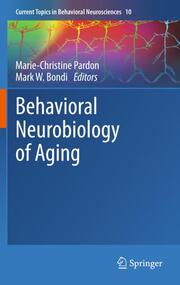Detailansicht
Behavioral Neurobiology of Aging
Current Topics in Behavioral Neurosciences 10
ISBN/EAN: 9783642238741
Umbreit-Nr.: 1806138
Sprache:
Englisch
Umfang: xiv, 362 S., 14 s/w Illustr., 14 farbige Illustr.
Format in cm:
Einband:
gebundenes Buch
Erschienen am 16.04.2012
Auflage: 1/2012
€ 213,99
(inklusive MwSt.)
Nachfragen
